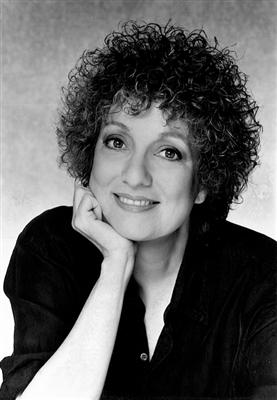Originally published on Fynsworth Alley.

Carol Hall
Carol Hall is the composer/lyricist of The Best Little Whorehouse in Texas, for which she received two Drama Desk Awards, a Grammy nomination, and an ASCAP “Most Performed Country Song” award. She’s also written music and lyrics for Sesame Street, Free To Be You And Me and its follow-up, Free To Be A Family, as well as for off-Broadway shows including A… My Name Is Alice, Good Sports, and To Whom It May Concern. Her songs have been performed by Barbra Streisand, Olivia Newton-John, Tony Bennett, Lena Horn, Barbara Cook, Michael Feinstein, RuPaul, Frederica von Stade, and Big Bird.
DL: How did this production of Whorehouse come about?
CH: That actually may not be that interesting for you. Because it really all has to do with [producer] Manny [Kladitis]. Manny specializes in road trips, road tours. He had gotten the rights from us and I believe Ann-Margret’s people called him looking for a project for her, so it’s not that zippy.
DL: So the idea wasn’t to do the tour for her initially when he got the rights?
CH: No. He wanted to tour it; he thought it was time for it to go out. She called him, which is kind of unusual, I guess, when you think about it. Or her people called his people.
DL: You ended up being pretty involved in this production. Is that usual for the original authors to take part when a tour goes out?
CH: I don’t think that is usual, and I’ve been having a really good time with it. In fact, in a lot of ways I’ve been more involved then the first time. I think part of that is the request Ann-Margret came up with for a new song. Just for her. It was interesting to me because there is nothing better than improving something you’ve written. I love rewrites; rewrites are actually my favorite part of writing. So, the idea that I can actually add something and improve it and make it better was actually very exciting to me. The hard part, the dark side of that particular moon, is that if a show has been out for twenty years, and if you have crafted it as carefully as you can, it probably doesn’t need a song. So I had to find the path of truth between those two things: the excitement to do something new, with not wanting to knock down the first domino that would make everything else crumble. Luckily for us there had always been a song that had moved around, “The Bus From Amarillo”. We put it in one place when the show opened. It had not ever worked really as well as we thought it should, so in London Tommy Tune had moved it to the end of the show – without telling me, I might add. Well, actually he did tell me; he told me in my ear on opening night right before they sang it in an unfamiliar place. He leaned over and said, “You’ll be real surprised at this.”
And so we’d gone back to see the show in Texas last year, we being Pete Masterson, Carlin Glynn, Larry King and I since we’re all from Texas and we all happened to be in Texas last summer and it was at Casa Mañana, a big musical theatre down there. We all went to see it and that production had put the song back into the pre-London spot which is actually where it is now. And we said to each other, “You know what? That will work with a new song at the end. Let’s put it back in the original spot.” It was a funny little juggling thing, but that song always had been juggle-able, so… But to answer your question, that was the beginning of more involvement for me this time. And then I was really interested in updating the arrangements, because twenty years ago when this show went up, no one had seen a six-piece country band on a Broadway stage before. That was wildly innovative, and as a matter of fact, I think Ain’t Misbehavin’ stole the idea of having the band on the stage from us. No one had ever seen clog dancing on a Broadway stage before. We couldn’t get by now with a six-piece country band, so [music director] Keith Levinson and I had some fun updating the arrangements. Arrangements are something that no one knows how to talk about. You never hear anyone describe arrangements because people, I think, are terrified to discuss music. I think it’s really easy for everyone to critique lyrics, but no one knows if they’re supposed to be saying, “You know the diminished seventh is really the wrong choice there.” So they just don’t say anything about music. But you know the fullness or the thinness or the quality of the arrangements is the bones of the whole thing, so we were interested, for instance, using synthesizers this time around, which we never used [in the original production]. So in that sense I was more involved. And then I don’t really quite know how it really happened. Except in the process of working with Ann-Margret, we had fun so we did a little bit more than usual.
Continue reading